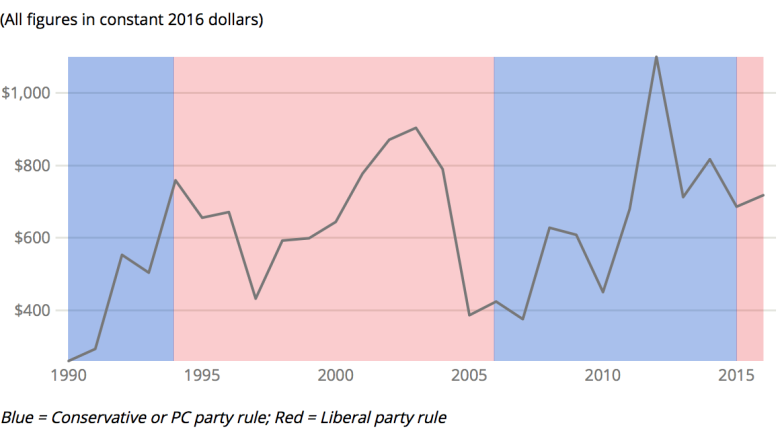Saudi Arabia top non-U.S. destination for Canadian arms exports: federal report
Saudi Arabia has regained its title as Canada's top non-U.S. destination for exporting military goods after having been narrowly bumped last year by the United Kingdom, according to a newly release federal report on arms sales.
The export of military goods report, prepared by Global Affairs Canada and tabled in Parliament on Tuesday, reveals that the Saudi government purchased over $142 million worth of Canadian arms. This accounted for nearly 20 per cent of all Canadian munitions exports reported in the annual filing.
The report does not factor in arms exports to the United States, due to a long-standing exemption agreement. However, as stated in the report, as a general rule shipments to the U.S. account for nearly 50 percent of all military good exports from Canada.
The total value of military goods sold abroad to countries other than the U.S. last year nearly reached $718 million dollars. Canada's NATO partners and traditional allies made up the bulk of the export market, including Australia, which purchased $115.8 million of Canadian-made equipment — second behind Saudi Arabia.
The sales to Saudi Arabia, however, will likely the draw the most attention and potential criticism from human rights groups, which have fought a protracted battle to halt the $14.8 billion sale of light armoured vehicles by General Dynamics Land Systems Canada — a deal approved by the former Conservative government, but green-lit by the Liberals.
The executive director for the anti-armament group Project Ploughshares says the most recent report once again signals an unwillingness on the part of the government to change its stance of Saudi Arabia.
"Just the fact that the top recipient of Canadian military goods is what is known to be one of worst human rights violators in the world must in my view raise some questions about the purported strength of Canadian military export controls and the country's commitment to the protection and promotion of human rights internationally," said Cesar Jaramillo.
Earlier in the spring, the Liberals tabled legislation that will enable Canada to join the international Arms Trade Treaty (ATT), which involves 130 countries and is intended to tighten weapons export regimes.
Jaramillo said he is concerned that the Canadian public is still in the dark about exports to the U.S., which is not bound by the provisions of the ATT.
"This is inconsistent with the expectation and the specific obligations of the treaty," says Jaramillo.
Report more transparent, accurate
The structure of the report was significantly overhauled compared to previous years, and responded to several demands made by critics of the past few years. Included in this year's report:
- The value of exports is for the first time stated as actual values exported, rather than authorized export values.
- For the first time, the very limited number exports to the U.S. that require a permit are now published.
- Figures on turnaround times for permit approval are also now included.
Also included for the first time are high-level details on export permit denials by the department. The report shows that in 2016, while 3,203 export permits were issued, only six were denied.
Ploughshares applauds the changes, but the organization says the information provided on the denials underscores the inconsistent application of checks and balances.
"If certain permits are denied for human rights causes when the intended recipient was Thailand, it begs the question of why they are allowable for Saudi Arabia?"
Among the denials was Ukraine, which has been trying unsuccessfully for years to get on to the Canadian government's approved registry of countries where weapons can be sold.
There is no indication precisely what equipment was denied export, but the government cites the ongoing conflict in the eastern portion of the country as the reason for the denial.



